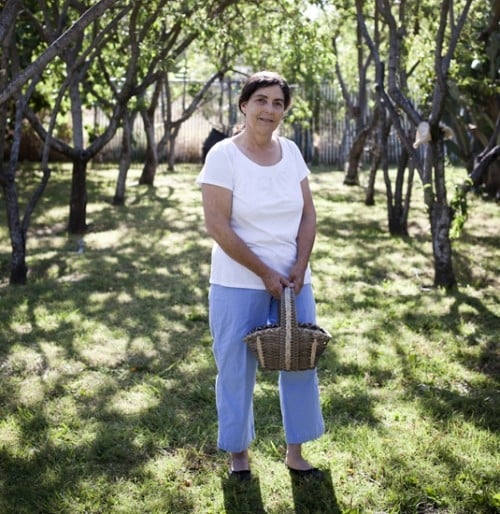This spotlight is a feature of WhyHunger’s digital storytelling that showcases grassroots organizations and community leaders through dynamic stories and pictures, to give a real view of projects that are working to alleviate food insecurity and increase communities’ access to nutritious food. We believe that telling one’s story is not only an act of reclaiming in the face of the dominant food narrative of this country, but also an affirmation that the small acts of food sovereignty happening across the country add up to a powerful, vital collective. Up today: Soil Born Farms; Sacramento, CA. Story and photos by David Hanson.
In 2006, Soil Born Farm’s Food Access Coordinator, Randy Stannard, heard about a man selling peaches at a crazy low price at one of the city farmer’s markets. He heard the man had incredible fruit but no permit. Since Soil Born Farms is a non-profit in Sacramento that supports farmer’s markets and encourages sustainable growers and farm education programs throughout the city, Randy found the man with the peaches and the man invited Randy to his orchard.
The orchard makes an thick L-shape beside and behind a modest two-story house in the northern suburbs of Sacramento, CA. It’s a quiet street with some empty lots, a suburban area where retail and residential have trickled in slowly rather than undergoing a full-on, mass development assault. The kind of outer city place that still has overt, physical reminders of its rural past, like tall, dry native grasses or a lot with an old barn still in back.
Randy walked with Carlos among his and his wife Maria’s 150 fruit trees. The couple had planted the trees twenty years prior, as soon as Carlos bought the empty lot. Apricots, grapefruit, oranges, apples, plums, pluots, cherries, peaches hung from the trees’ shady ceilings. A row of nopale cactus stood one story tall. Randy couldn’t believe it all grew on this non-descript semi-suburban lot and that Carlos had never intended to sell any of it until that year.
Now this story will sound like a movie writer’s or campaign speech writer’s ideal of American Dream: Immigrant Version. But it’s true and it’s told just as Maria told it to me while we walked under the fruit.
Carlos moved to the US at age 15. He and his father and brother left the small pueblo of Atangillo and worked on a dairy farm in the States. Then they went back to Mexico. But Carlos didn’t want to stay in the small town. He wanted the American dream. So he moved to Tijuana and drove a taxi, shined shoes, and worked in a restaurant. Eventually he settled in Sacramento. When the construction season slowed down in winter, Carlos returned to Atangillo to visit his family and his girlfriend, Maria. He and Maria wrote letters to one another, too.
In 1972 Maria moved up to Sacramento to marry Carlos. They lived on the other side of town from where the orchard and home now sits. Carlos worked construction for 29 years. They had kids and Maria stayed home to be with them. They wanted their kids to love the land and enjoy simple pleasures, like the ones Carlos and Maria remembered from their pueblo. They didn’t want their kids to be spoiled.
In 1985 Carlos bought a piece of land in the north side of the city. He planted fruit trees there and he’d go most evenings to water and tend to them. By 1993, he and Maria had saved enough to build a house on the lot and move into their fruit orchard. Their kids could wander into the yard and sit in the shade below a ceiling of fresh fruit, just like Carlos had imagined.
Carlos never intended to make money off the orchard, even though he had 150 trees. He simply wanted to grow fruit and share it with his family. But Maria saw it differently. She asked why he worked all day on the fruit and they could only eat and give away so much of it, then the rest rots. So Carlos decided to try to sell some of his fruit.


